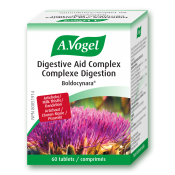What is the nausea?
Nausea is simply the unpleasant feeling that you may potentially vomit. Vomiting, on the other hand, is an automatic response that terminates with the forceful expulsion of gastric contents. Nausea usually has a protective effect as it prevents you from ingesting harmful substances, and similarly, if you ingest something unpleasant the body’s response is to expel it.
How it occurs?
The so-called “mechanism of action” (i.e. how it happens) varies on what is causing the nausea. The list of conditions that lead to nausea is extensive, and this is also true of postprandial nausea. Below is a “Coles note” list of five common causes of nausea after eating.
What are the causes of nausea after eating?
- Infection: Many of us have been here, and it is very unpleasant! Food poisoning is usually the culprit, but viral gastroenteritis is also a common factor. If the nausea is sudden, followed by vomiting, especially within a couple hours after eating, chances are it’s food poisoning. Many different microbes can lead to food poisoning by means of toxins they produce. As unpleasant as this may be, the condition is self-limiting, but it is very important that you hydrate yourself. Monitor your symptoms and do not hesitate to seek immediate medical attention.
- Pregnancy: This one only applies to less than half of the population, but any sexually active woman of childbearing should take pregnancy into consideration. If you are on the pill, or other contraceptive methods it is important to go in for a regular check-up with your primary health care provider or gynaecologist.
- Dyspepsia: This is a fancy word for indigestion. Dyspepsia could be functional (meaning that something isn’t working properly, presumably issues with “motility” or how food travels down the digestive tract); or it could be due to other digestive problems (e.g. gallstones or inflammation of the pancreas). Dyspepsia can be acute, but some people endure this for months and years (chronic), which is not without a cascade of complications like a decrease in the quality of life.
- Medication/substance: Most medications can cause nausea and vomiting. At the forefront of these are chemotherapeutic agents, but illicit drugs and even alcohol can lead to nausea—after all, the body recognize them only as toxins.
- Anxiety: We can couple anxiety with other psychiatric disorders (e.g. anorexia, bulimia, depression, etc.). While these are not directly involved in the digestion of food, the digestive system is highly sensitive to our psychological and emotional state. During times of stress the body prioritizes its “fight or flight” response at the expense of digestive processes. After all, the body doesn’t know what’s causing the stress—it will always assume that you’re being chased by a tiger, and if that’s the case, a belly full of food would only weigh you down.
This is not an exhaustive list, and many other conditions (e.g. allergic reaction, neurological and metabolic conditions) can lead to nausea. Always check in person with a qualified health care professional in order to get down to the root cause of the nausea.
What can be done?
First thing is first, go in for a chat with your family physician, nurse practitioner, or licensed naturopathic doctor. If the symptoms are sudden, chances are it’s food poisoning (usually last 24-48 hour), so monitoring fluid intake is important, but this should not undermine the importance of a proper medical checkup. Other more serious conditions can be the underlying reason for your nausea. Your healthcare provider will walk you through the necessary steps.
For those of you that have been given “medical clearance”, and suffer from postprandial nausea due to long-standing indigestion (e.g. functional dyspepsia), you may consider adding a spoonful of lactic acid to your diet prior to a meal.
Some people have used apple cider vinegar, but find it a bit irritating. Herbs that stimulate liver and gallbladder function may not be a bad idea (e.g. milk thistle, boldo, artichoke). If stress and anxiety affect your digestion, you may want to discuss your options with a trusted counsellor, clinical psychologist, or even a licensed naturopathic doctor for additional “natural” options.





